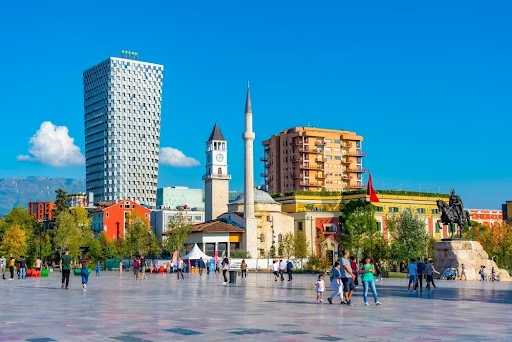
On November 2023, the European Commission adopted a new Growth Plan for the Western Balkans, to bring local partners closer to the EU through offering some of the benefits of EU membership to the region. To support this process, a new EUR 6 billion financial instrument, the Reform and Growth Facility for the Western Balkans, was created for the period 2024-2027.
The disbursement of this substantial EU support should be contingent upon meeting the payment conditions and demonstrating measurable progress in implementing the reforms outlined in the Reform Agenda, as assessed and formally approved by the European Commission. This makes it clear that the successful implementation of the agreed reforms and investments is of critical political and economic importance.
The execution of the plan should be underpinned by a coherent and prioritised set of targeted EU-related reforms and investment priorities, providing a framework for boosting socio-economic growth. In this context, there is a need to jump-start and incentivise preparations for EU membership for Albania. To achieve this, the benefits of the membership itself should be at the centre stage of the process, especially in ways that can be directly perceived by the citizens through implementation of reforms and investments supported by the Reform and Growth Facility.
To support Albania in this journey,the joint Norway/UNOPS “Knowledge for Reform Action in the Western Balkans” (K4R) Programme has already provided the Albanian authorities with technical expertise in the following areas:
- assistance during the development of their Reform Agendas, by providing quality review of the indicators, targets and verification mechanisms of outputs and outcomes for each reform area identified;
- establishing a clear link between the Reform Agenda targets and the required milestones for funds disbursement;
- identifying necessary tools to monitor and evaluate the effectiveness of budget utilisation and reforms implementation, based also on RRF experience;
- Convening a capacity-building workshop for key stakeholders to ensure effective programming of reforms package under the National Reform Agenda and alignment with the Reform and Growth Facility requirements.
During the process of preparation of the Reform Agenda, the K4R Programme also presented to Albanian authorities the lessons learnt from the implementation of the Recovery and Resilience Facility in Croatia (available to EU member countries, but very similar in nature to the Reform and Growth Facility). This has had a significant value, given that Croatia is one of the frontrunners, in the EU, in terms of Recovery and Resilience Facility implementation.
With the support provided, by the beginning of June 2024, Albania had finalised the consolidated draft of the Reform Agenda and communicated it with the European Commission.
The main priorities remain upholding the rule of law, combating organised crime and corruption, strengthening the judiciary, and promoting democratic principles. Additionally, the country has taken measures to strengthen institutional capacity and strategic frameworks to reduce illicit drug supply and demand, while ensuring reliable frameworks to prevent and counter money laundering. Albania is also working on enhancing freedom of expression, aligning criminal and civil aspects of defamation with EU standards, and conducting policy impact assessments to align national legislation with EU regulations.
Another priority of the Reform Agenda focuses on digital transformation, by establishing a leading digital society. In this area, Albania also plans to update its framework for a secure and sustainable digital infrastructure. Additional efforts are being made in other relevant areas, such as: the green agenda and sustainable connectivity, and human capital development. On the green agenda, the country has the potential to significantly contribute to the acceleration of the green transition through several reforms that can reinforce environmental protection, biodiversity conservation, climate change mitigation, climate resilience, disaster risk reduction, and the shift towards a low-carbon economy. Finally, on human capital development, Albania is moving towards updating curricula in primary and secondary education, as well as advancing digital skills and literacy.
The Reform Agenda for Albania serves as a crucial platform to enhance Albania's market-oriented economic actions and facilitate its access to the Single EU Market, ultimately aiming for convergence with EU member states, while fulfilling in the same time the precondition for benefiting from the EU's New Reform and Growth Facility.
Thus, the K4R Programme will continue to provide support to the Albanian authorities with the goal of maximising the benefits of implementation of the Reform Agenda.
- Summary